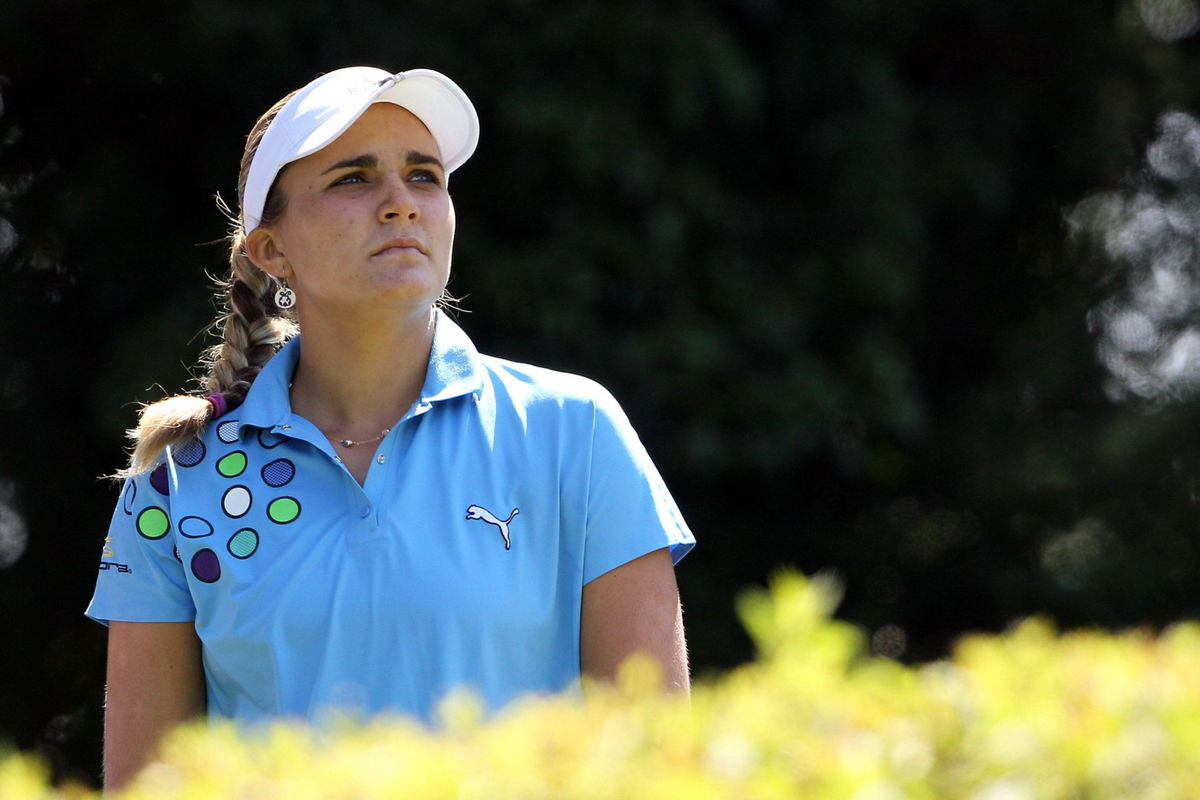
Imago
Bildnummer: 06237459 Datum: 25.07.2010 Copyright: imago/PanoramiC Golf : Evian Masters – 25.07.2010 – Evian – Alexis Thompson (USA) EdLEMAISTRE PUBLICATIONxNOTxINxFRAxITAxBEL; Damen Golf Evian Masters Aktion Einzelbild vdig xsk 2010 quer dames dame feminine feminin femmes femme tournoi master evian masters golf largeur attitude Image number 06237459 date 25 07 2010 Copyright imago Panoramic Golf Evian Masters 25 07 2010 Evian Alexis Thompson USA EdLemaistre PUBLICATIONxNOTxINxFRAxITAxBEL women Golf Evian Masters Action shot Single Vdig xsk 2010 horizontal Dames Lady feminine feminine Femmes femme Tournoi Master Evian Masters Golf largeur Attitude

Imago
Bildnummer: 06237459 Datum: 25.07.2010 Copyright: imago/PanoramiC Golf : Evian Masters – 25.07.2010 – Evian – Alexis Thompson (USA) EdLEMAISTRE PUBLICATIONxNOTxINxFRAxITAxBEL; Damen Golf Evian Masters Aktion Einzelbild vdig xsk 2010 quer dames dame feminine feminin femmes femme tournoi master evian masters golf largeur attitude Image number 06237459 date 25 07 2010 Copyright imago Panoramic Golf Evian Masters 25 07 2010 Evian Alexis Thompson USA EdLemaistre PUBLICATIONxNOTxINxFRAxITAxBEL women Golf Evian Masters Action shot Single Vdig xsk 2010 horizontal Dames Lady feminine feminine Femmes femme Tournoi Master Evian Masters Golf largeur Attitude
In golf, you lose more than you win. And when she hasn’t been able to log a single tournament win for a long stretch of time, six years to be precise, Lexi Thompson had only one thing on her mind: Is it finally the time? It was the 2024 US Open, and Thompson, who started playing golf at 12, couldn’t afford to not speak her truth: “It was exhausting to maintain a smile on the outside while grappling with struggles on the inside… It’s OK to not be OK,” a teary-eyed Lexi Thompson had said at the time. Her moment of truth had come. Lexi Thompson had retired from the game of golf. But it takes a special kind of courage to get back to putting green, and every so often, put your life’s work to the test, repeatedly.
Watch What’s Trending Now!
During an exclusive interview with Jess Marksbury of Golf Magazine, Thompson opened up about what has changed for the 30-year-old in the last year. Even though Thompson was emotionally unwell, the 11-time LPGA winner never wanted to stay away from the greens forever. When talking to Marksbury, Thompson opened up about what this semi-retired life means and whether it has benefited her mental health.
“I have a lot bigger breaks in between events than a normal player would, but it’s nice. It’s my 15th year. It’s very, I think, well-deserved. I’m enjoying my off time and still practicing when I can,” Lexi said. On May 15, the Meijer LPGA Classic also confirmed the 30-year-old’s participation in the tournament. But it doesn’t mean Thompson has taken a step back from raising awareness around mental health.
Lexi Thompson took to Instagram to remind her 600k followers that “It’s okay to not be okay and seek help; always remember that you are not alone.” She shared a post by therapist Jamie Nelson in recognition of Mental Health Awareness Month on her story, which read, “Mental health is very very real. Sending love to all who are struggling.” Thompson’s message comes after her decision to step back from full-time professional golf, citing the mental and emotional toll of the sport. Her heartfelt post serves as a reminder of the importance of prioritizing mental health and getting help, whether it is your therapist, your friend, or, in Thompson’s case, her mom.
Recently, Thompson expressed her immense gratitude and love for her mom on Mother’s Day, sharing a heartwarming tribute that melted hearts. “Happy Mother’s Day to all the moms out there, but especially to my best friend and my biggest role model. So thankful for you every single day ❤️ I love you, Mom!” she captioned a sweet photo of the two smiling together.
Well, unfortunately, Thompson is not the only female golfer who has had to fight against her declining mental health.
Lexi Thompson isn’t the only one who struggles with mental health
Paige Spiranac knows the dark side of perfectionism all too well. As a professional golfer turned social media influencer, she’s been open about her struggles with depression and anxiety. “I was also very depressed and struggled with a ton of anxiety,” she revealed, describing her younger days. Her experiences have given her a unique perspective, and she’s now on a mission to help the next generation of golfers avoid the same pitfalls. Spiranac advises young golfers to ditch the pursuit of perfection and focus on having fun. “Stop seeking a perfect swing and start playing,” she says, encouraging them to build a support system and learn to cope with failure.
Spiranac’s own journey with mental health has been a long and difficult one. She struggled with the pressure of competition, often finding herself scoring well in practice rounds but faltering under stress in actual tournaments. “I just can never allow myself to compete… And let go of the stress and pressure that comes with competition,” she said. Having faced her own demons, Spiranac is determined to make a difference. She wants young golfers to view the game as a source of joy rather than a source of stress. By sharing her story, she’s hoping to inspire a more positive and supportive community in the world of golf. What do you think about Spiranac’s message? Let us know your thoughts in the comment section below!


